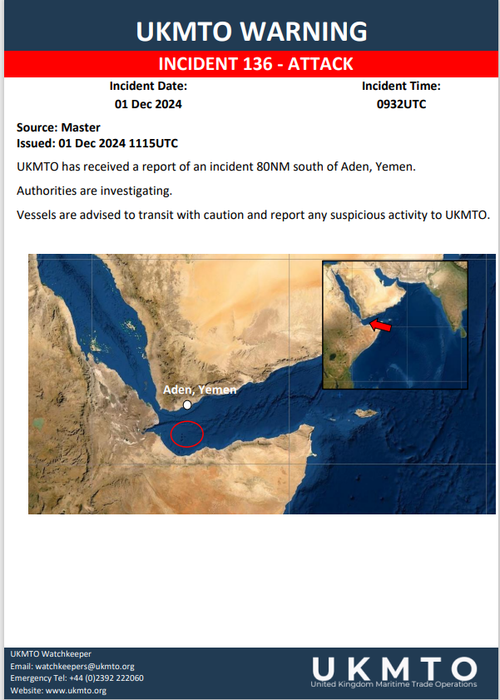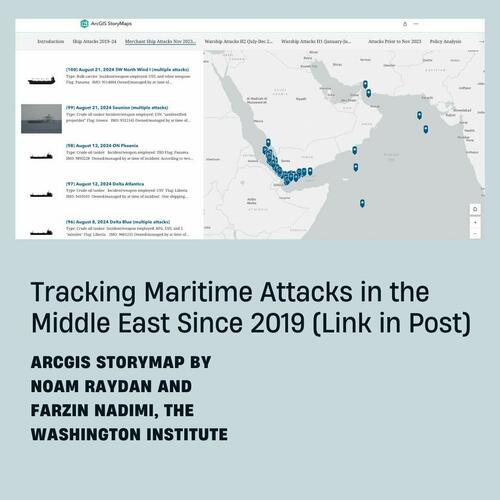The US Central Command (CENTCOM) released a statement late Sunday night detailing how two US Navy destroyers intercepted missiles and drones targeting three US merchant vessels in the Gulf of Aden near the Bab al-Mandab Strait, one of the world's most critical maritime chokepoints.
According to CENTCOM, two Arleigh Burke-class guided-missile destroyers, USS Stockdale (DDG 106) and USS O'Kane (DDG 77), successfully neutralized ran-backed Houthi-launched missiles and kamikaze drones. These included three anti-ship ballistic missiles (ASBMs), three one-way attack uncrewed aerial systems (OWA UAS), and one anti-ship cruise missile (ASCM), aimed at a flotilla of three US-owned, operated, and flagged merchant vessels transiting the Gulf of Aden over the weekend.
"The destroyers were escorting three U.S.-owned, operated, flagged merchant vessels, and the reckless attacks resulted in no injuries and no damage to any vessels, civilian or US Naval," CENTCOM said.
On Sunday morning, the British military's United Kingdom Maritime Trade Operations Center (UKMTO), which monitors Middle Eastern waterways, reported an "attack" on a vessel approximately 80 nautical miles south of Aden, Yemen.
There is no word if the vessel attack UKMTO reported on Sunday morning was related to the missile and drone attack on US merchants and warships.
However, X accounts focused on open-source intelligence showed several fixed-wing US or allied military assets operating in the skies near the incident area.
OVERLORD02 #USNavy MQ4C TRITON #UAV active Gulf of Aden, returned to UAE 1237zhttps://t.co/sx9LUbeiif pic.twitter.com/sp35y9TQ0P
— nde (@5472_nde) December 1, 2024
P8 🇺🇲#AE6844
— 1776Girl (@sipjack1776) December 1, 2024
Over the Gulf of Aden @Borrowed7Time @HusseinSalmanQ @SR_Planespotter @N214WN pic.twitter.com/CzxsPU5tWq
The Washington Institute's Noam Raydan reported in October that Houthi rebels launched 80 attacks on commercial ships in the critical maritime chokepoint in the southern Red Sea, sinking two ships and killing four sailors. This has since sparked a global supply chain crisis, pressuring container rates higher.
In recent days, the Syrian proxy war, which never truly ended, flared up again, as the world is on fire under a weak Biden-Harris regime.
Source link



